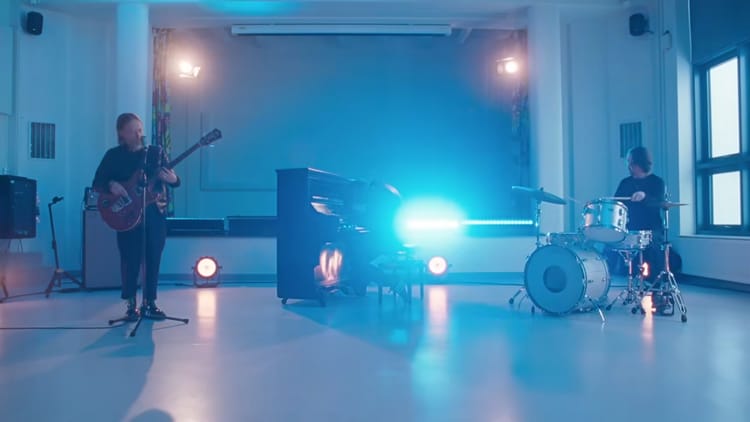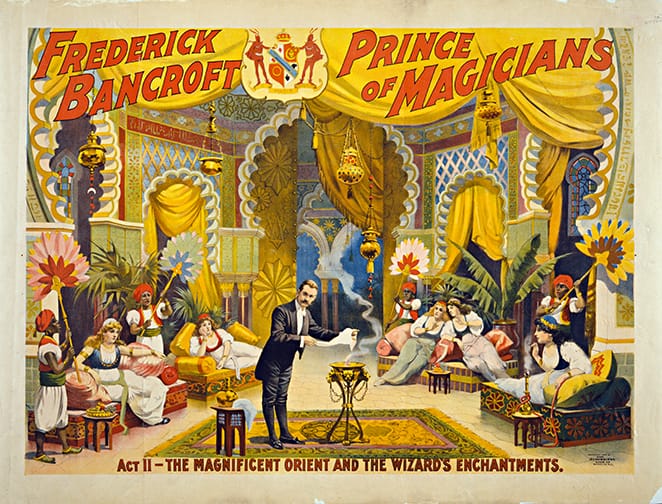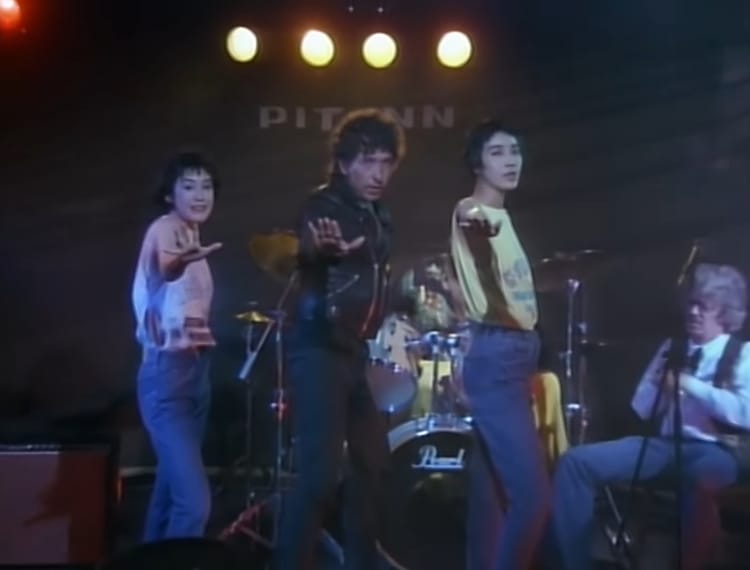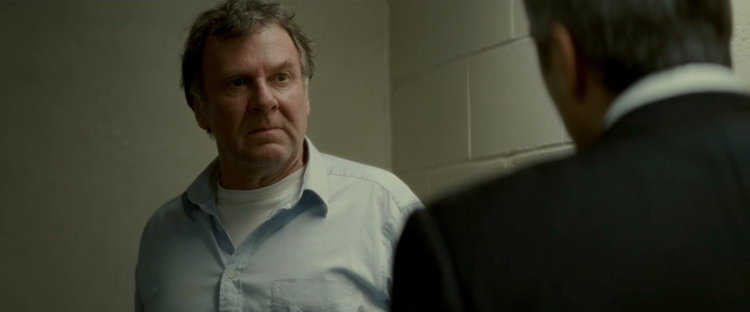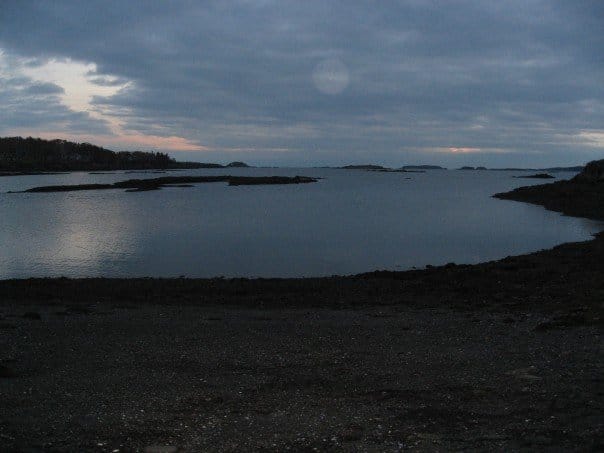“I Hope You Find Love” in Halloween Ends
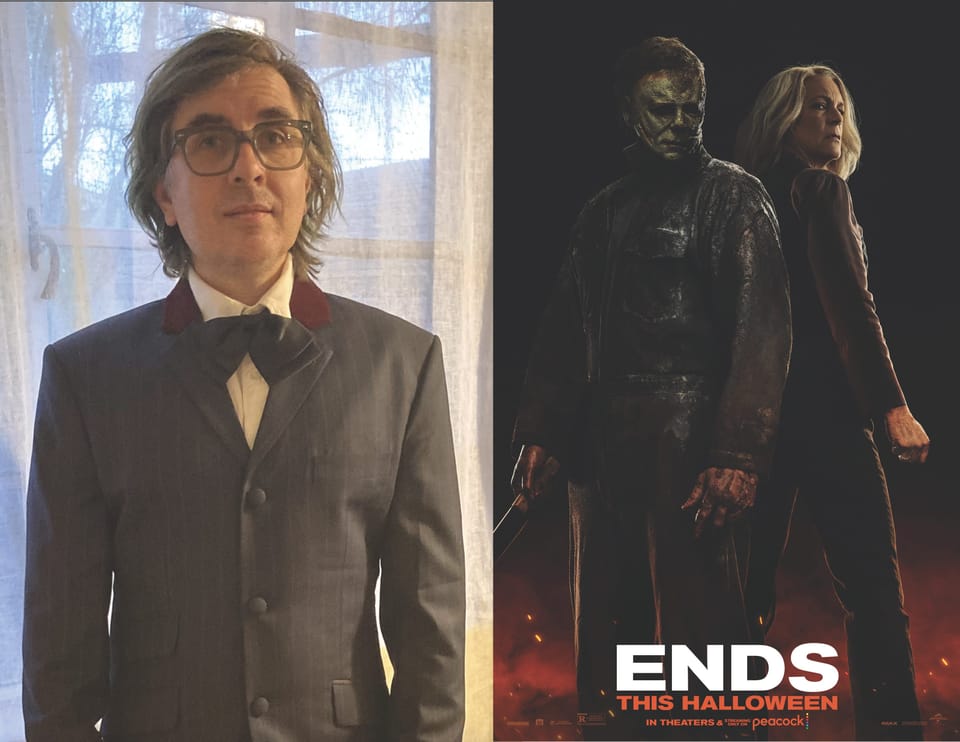
I have an odd relationship with the Halloween movies. It’s never been my franchise, and yet I’m a completist—I find something compelling about how many branches the story has taken, how strange it’s gotten in how many ways, from Paul Rudd ranting about evil runes to Busta Rhymes kung-fu kicking Michael Myers out a window. It’s an endlessly elastic property, and I thus find something particularly fascinating about David Gordon Green’s recent trilogy for Blumhouse—Halloween (2018), Halloween Kills (2021), and Halloween Ends (2022).
These are movies infused with ideas as much as they are murders, and maybe even moreso. In Halloween Kills, I found the ideas oppressive and hysterical, and generally found the movie to be one of the less satisfying in the franchise. I was thus delighted to watch Halloween Ends last Friday and find myself compelled, and even transfixed, by its treatment of Michael Myers and the town of Haddonfield. Here, the ideas were intriguing and effective, and once I was aware that co-screenwriter Paul Brad Logan had been inspired by John Carpenter’s adaptation of Stephen King’s Christine, I began seeing King everywhere in this small, haunted film.
Michael Myers is used sparingly in Halloween Ends, most often serving as one of those ideas more than a clear and present threat, but I find the way he’s drawn here to be one of the most interesting of the entire franchise—this shambling, reclusive Michael is the closest the character has come to feeling like the Universal monsters to which he serves as inheritor, and I find the effect distinctly powerful.
I found the entire movie so powerful, in fact, that I was brimming with questions about it. So I got in touch with co-screenwriter Paul Brad Logan, who was generous enough to give me half an hour of his time, and some very candid answers on the film’s development, his own intentions, and his still-developing understanding of his own story.
(This interview has been edited and condensed for clarity).
Tell me what your relationship with Halloween was prior to getting this job.
I think like anybody into film in the ‘80s when I was a kid, I was just enthralled by horror. That series in particular was something that it took me a while to work up the nerve to actually watch because I was so terrified of it—just the video box art. And I actually started in reverse order: I saw part four [The Return of Michael Myers] in the theater, enjoyed it, saw part three [Season of the Witch], my friends were already up in arms about [that one] because it didn’t have Michael Myers, but I just found it so freaky, and interesting and weird, and I really loved it. And then two, and then one. And once I got to one, I was like, Oh, I understand why they’re making these movies. It’s such a beautiful masterpiece. Everybody calls it a classic, and still, I don’t know if that does enough praise for what John [Carpenter] and Debra [Hill] did in that short amount of time with a small budget, to make something that is so masterful. John Carpenter is one of my favorite filmmakers in the world.
So that was my introduction, and then I’ve worked with David [Gordon Green] in the past. I wrote a movie for David about ten years ago called Manglehorn that had Al Pacino and Holly Hunter in it. And whenever he got this email from Jason Blum about potentially doing [Halloween] he called me, and I begged him to do it because I always love when interesting directors go into genre films. I wanted to see, what would David’s horror movie look like? And then he invited me in 2018 to work on [Halloween] Ends.
So he specifically contacted you about the third one? Or was there any talk about you doing any of the other two?
I had read the script for [Halloween] 2018 before it came out, and then I had seen a rough edit of it. That was the summer of 2018, and he wasn’t getting too ahead of himself—he was like, Well, if there are sequels, maybe you should start brainstorming some ideas, which I did. I don’t think any of them are in the movie, but yeah, a couple months later he hired Scott [Teems] to do Kills, me and Chris [Bernier] to write Ends. And so we flew to Charleston to work out the story while he was still working on finishing the script for Halloween Kills.
So were those developed in tandem at all, or were they very much their own thing?
A little bit of both. I think there was already a draft of Kills together by the time we started working on Ends, but it was an early draft, they were still working on it. We were reading that as we were writing our own, but still trying to come up with what the story was we all felt compelled to tell using Halloween Kills as inspiration. Everybody kinda gets into a little bit of a Star Wars mentality, a serial mentality with these things, and I always like just a standalone film. And so that was a little bit of David’s mentality: he wanted to take those characters and those ideas and not completely abandon them but let us do our own thing with that final movie.
There are four credited screenwriters–you mentioned [Chris Bernier] just now and then there’s Danny McBride and David Gordon Green. What was the collaborative process like between the four of you?
The conceptualizing of what this story was going to be was a wonderful writer’s workshop, just literally coming in and then throwing out anything we could, just to get us talking. I even remember at one point, David said, What is the Harmony Korine version of this movie? So I went home one day and I wrote a 50-page Gummo: Part Two, basically.
Damn!
And so it was just a super creative, fun, exciting place to be. And then we had this opening idea, this opening scene. And then at that point we were just in service to that idea, that story. I was in a little bit of a bubble as far as, like, No, we’re just telling this story. But we finished the first draft in a couple of months and then I was doing rewrites pretty much every day from that point through the shoot of the movie. I was telling somebody the other day, I’ve got maybe 400 drafts of this screenplay–we would take a scene and then just do the opposite of it just to see what would happen. There was a lot of experimentation, which was so much fun.
Something that I see people say on Twitter, and I kinda get it, is: Danny McBride has such a big, recognizable voice, and it’s maybe not as detectable in these movies as you might expect if you’re looking at Righteous Gemstones. So do you have a sort of elevator line on what his contribution is that we should be recognizing?
Well I was working so intimately with David and then Chris, and Danny was doing Gemstones at the time. So I think David was in conference with Danny a lot. It’s funny, though, I mean David and me, typically we write more comedy. We like to laugh a lot. So I will every once in a while read something that’s like, Oh, I can totally see this is Danny here, and I’m like, Oh, no, that was David, or, Oh, no, that was my thing.
I think probably growing up in small towns across the United States and being into movies at such an early age, we all felt like lost brothers, and I think we share the same sensibility, the same love of ‘70s movies. I love all movies, I love classics, I love the ‘30s and ‘40s, but ‘70s movies, that’s what we’re always talking about all the time. Anytime I go into any new movie, my first thing is, What would the Robert Altman version of this movie be? And that’s sort of my starting point. So Halloween Ends, whenever we first started thinking about it, I was like OK, well this is gonna be Short Cuts, and I got really excited about that.
Do you feel like that version of it ended up in there in any way?
I think it’s way more intimate. David went full-tilt with the stylistic flourishes and this beautiful aesthetic, it really feels more akin to me to David Lynch, and the sound design and the abstraction and the emotion–it’s got a haunted emotion to it that I just love. And once we honed in on the script, we started trying to amplify those moments. And then David is such an instinctual filmmaker that when we’re on set, he has no problem being like, No, I think we’re gonna just try this, I think we can just get away with this moment, we don’t need to do all the dialogue. Which is fine, I’m right there with him. Whatever you can do to bring a scene to life, that’s what he’s trying to do.
To move into the movie itself a little bit, maybe an obnoxiously broad question, but: what would you say it is about in the biggest terms?
Whenever I’m working on something–and David probably has a different thing, and Chris, and Danny as well–I’m never thinking about what this is about? I’m just trying to tell the story, and then only after the fact can I step back and go, Oh, that was about that. I didn’t know what that was about, but I see it now.
After the premiere, my girlfriend and I were driving back from Los Angeles to Texas, where I live, and we stopped in Tuscon and watched it in a theater Saturday night. And I had this line that I actually put in the book–I wrote the novelization for the movie as well–and that’s, Hurt people hurt people. And that’s what I felt, I just felt this fragility. It’s a tragedy. We’re all so fragile, and we take our pain, and it’s so challenging not to unintentionally, or intentionally, inflict that upon other people. And I feel like with David’s Halloween movies in particular, the violence in the movies, while sometimes it can be really fun, a lot of the time it actually has a deep sadness to it, and it feels very brutal.
I think the [2018] movie, looking back on it now, is like, I’m gonna fight fear. I’m gonna fight it, I’m gonna arm myself. In the second movie, I think they are trying to overpower fear, or even act like it’s not there, it’s not a thing. And then ours is more or less accepting fear. Again, I don't really think too much about thematic conceits like that. It’s only after the fact I try to sort of investigate it and see what it was that I was compelled by, and that’s what I’ve come up with now. Maybe in a month I’ll have a much better idea.
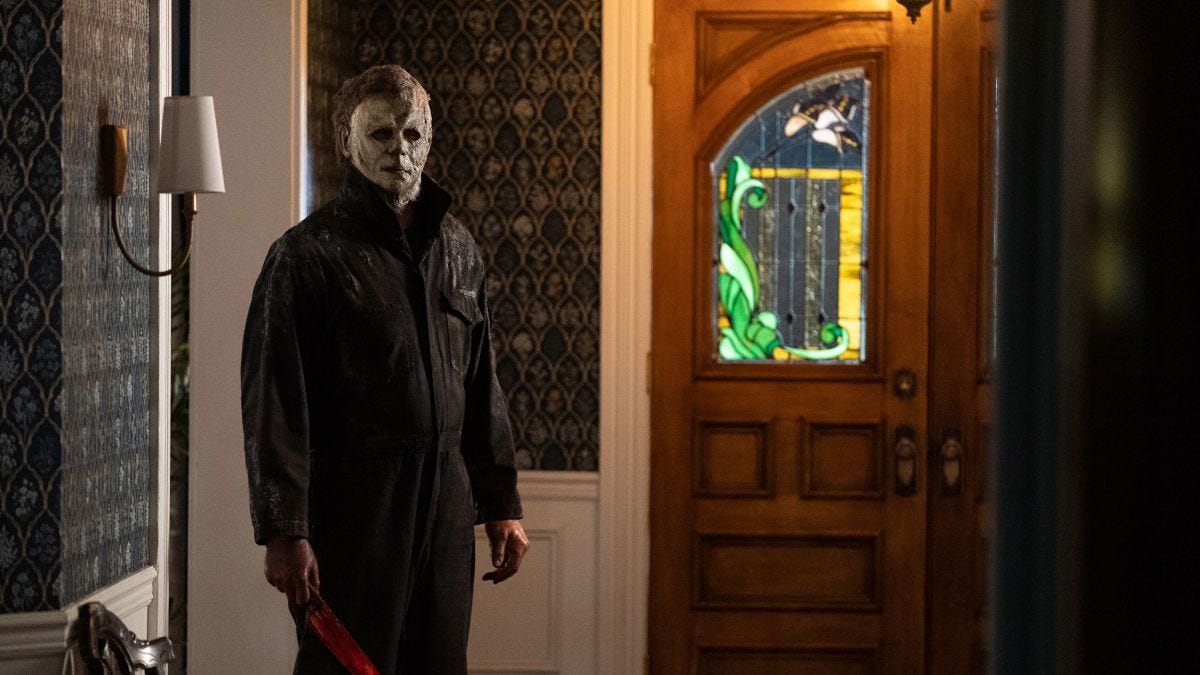
I’m gonna throw another obnoxiously broad one at you: there’s this idea in there that Michael is the personification of evil, and that’s come up at various points in the franchise. So within the context of Michael Myers–what is evil?
That’s an interesting and difficult question. One of the most fascinating aspects of that character, as with any Universal monster, is not necessarily defining where they’ve come from. All humans are gray. You can look at an awful, monstrous person and you can find out why they are the way they are. With Michael, he’s not. He’s a blank slate. He’s just our perception of everything bad that could happen to us, which is basically love and death, at least in my mind. We lose the ones we love, and Michael’s come to take them away. I think it’s a great vessel to explore those primordial life-living fears. I almost think of him as just death incarnate. It’s The Seventh Seal, he’s the Grim Reaper, he’s there and ready to go.
Well that segways into my next question: the radio DJ, I think, says Michael is more than a man. So is he literally supernatural at this point in your conception?
I can’t even say that I know. I think he really does straddle the line between the human element and the inexplicable element. Obviously he can feel pain to some degree, his nerves can feel pain, at least. He bleeds, so there’s human aspects to him. But then again, in 1978 he’s putting tombstones in upstairs bedrooms and things like that. So there’s gotta be something. I always think he’s the conduit between Hell and Earth. I don’t know, to define him destroys the mystique a little bit. To me, he’s still a quagmire. He’s still something I’m interested in exploring and thinking about.
So maybe more of a nitty-gritty question: what is it that happens the first time that Michael and Corey lock eyes in this movie?
I get all nervous with these questions, because we’re servicing David’s vision. In the book, I’m a little more explicit with it—personally, I think he’s allowing Corey to release the evil that’s inside him. Corey’s adopting the blackest eyes, as Loomis describes Michael [in the 1978 film]. Maybe we all have an element of that somewhere in us, and Michael is a way to let that out and bring out the worst impulses, and the worst intentions. That’s what I was thinking.
And then by the time the doctor and nurse and murdered, what is the relationship between Michael and Corey?
Corey reawakens Michael in some way, and reinvigorates him. It can get a little bit absurd when thinking about a friendship or a camaraderie between who we know as the Shape1 and then Corey, but one movie that we watched a lot was My Bodyguard. And I think that’s an element to it. I’m kind of curious if Corey just hung around more with Michael—I don’t know that Michael would just let him live, personally. I don’t think Michael has any fondness for him. [Corey’s] inviting the devil into his world and he’s fortunate that he survived as long as he did.
Let’s talk a little bit about Stephen King. You mentioned on Twitter that Christine was a big influence, that is definitely detectable. But I see a more overriding Stephen King thing. Is he somebody that you’re a fan of?
Yeah, and especially the movie versions of his books that I grew up watching. Whether it was Christine or Carrie or Cujo, there was always this strange offness in his world that was just unsettling. Even Stand by Me is a beautiful, nostalgic film, but as a kid it terrified me. Even when he’s doing something like that, you can feel the violence permeating in the air, and in the soil, and you never know what unsettling, unnerving thing is going to happen to you next. And I think that’s in the air that I breathe, at least, when working on anything. That’s a huge influence.
I’m not the only person to draw a comparison here between Haddonfield and Derry in It, where it does feel like this town has just absorbed evil in a cellular way, in an almost metaphysical way. So there’s those shots early on of the violence that is taking place around Haddonfield—somebody has either killed themselves or been lynched, there’s been a shooting. Am I on base that there is this infusion of trouble, or is it just that everybody’s paranoid and it’s a naturalistic thing?
I think it’s a little bit of both, but I think when Michael exists and people know where he is and what he’s doing, it’s easy to put all of your fears on this one thing. It’s like, Well, there he is. Once he’s gone, you’re left grasping at nothing. He’s buried in your psyche. To me, those violent moments at the beginning, that little montage sequence, is the senseless violence that I think we feel in society a lot—not to sound too pretentious or anything like that.
Who do you blame this on? I want a boogie man. I want a figure to say, This thing did that thing. And I think that’s what Corey absorbed through his accident: he could become that figure for a lot of people in town. I don’t know if it’s a uniquely American thing, but oh my god, we just want somebody to be held accountable for everything.
It’s very easy to see Michael as a manifestation of an idea, but he is also a character. So how do you grapple with that sort of dichotomy?
I think David, obviously having already done two movies prior to this one, had really come to an understanding of who his version of Michael was, this 2018 version, which was obviously drawing every inspiration and influence from what John and Debra established in ‘78. And so David was the person we’d go to—David, what do you think about this? How far can we push this character? And we would take it to really extreme places in some of these drafts, and then David, in the edit especially starts to see, like, I think we need to pull him back, I think he’s doing too much there, I think we’re maybe defining him a bit too much there. And it’s just trying to find that balance of ambiguity and mystery that he evokes.
Something that I was really startled by in [Halloween Kills and Halloween Ends] was how comfortable these movies are taking off Michael’s mask and showing portions of his face—it’s very artful, you don’t have a full glimpse, but you have more of a sense of his face [than in other Halloween movies]. How do you feel about that?
It’s the only moment in 1978 that gives Michael pause, when Laurie gets her hand on that mask and pushes it up. So that is a jumping off point to inflame our imaginations of what exactly that means. What does this mask represent? And then of course it’s the same thing when you show Michael as a human.
I appreciate what Rob Zombie did with those movies, I think it’s a really cool experiment. It’s not the same thing, but what Gus Van Sant did with Psycho—I love it! I want to see, yes, what does that look like if you go remake that movie? I think it’s an incredible experiment, I love that he did it, it’s beautiful. And I love that we have movies that say, Oh, Michael came from here, he’s a real human, he does this and this and this.
But still, to me he needs to remain somewhat faceless, and David’s aware of that—even though his mask is removed so many times, David’s pretty careful about trying to not just give you a full-on glimpse to the point where you’re like, Oh, that’s just a person. But I feel like within this movie, with accepting fear, there becomes an acceptance of: at the end of the day, this is a guy wearing a Halloween mask. And a lot of that fear and stuff has been built up in our own imaginations. So stripping him of that, stripping him of his fear, is an important thing for Laurie to do, or Corey to do.
So obviously you’re ending with a big Michael/Laurie showdown–there are other directions you could have gone, but I think betting people would have laid their bets on that. So how do you go about making this one distinct? What is it that makes this the conclusion to four movies2 and not just another?
The ending was a real challenge, because we never want to repeat what’s been done, we want to try to find something different. So we were like, We can’t really do a cat-and-mouse situation, it’s been done over and over again. So intimacy is the thing we need to explore, try to find some intimacy within this final showdown. But the lead-up to that, I remember watching The Untouchables a lot and thinking about Sean Connery, that great twist and reveal in that movie was a big inspiration.3 So to have a little bit of the traditional Halloween stuff through Corey coming up upon Laurie, and then getting more intimate with Laurie and Michael, and just keeping it physical, keeping it contained.
Because what are you gonna do? You can do the hide-and-seek thing, which we do a little bit of, and I wrote every variation of that, and it just feels like a different version of [the same] thing. It felt a little punk rock to keep it intimate.
Were there any thoughts of doing something that wasn’t just the Laurie and Michael showdown?
No. It was just all a question of how to try to get to that place. We knew that was going to happen and we sort of let the story, as far as we could tell, take us in that direction organically, and just tried to follow it as best as we could. Well this happens—oh! And then this happens. Try to make it organic. That was our intention, at least.
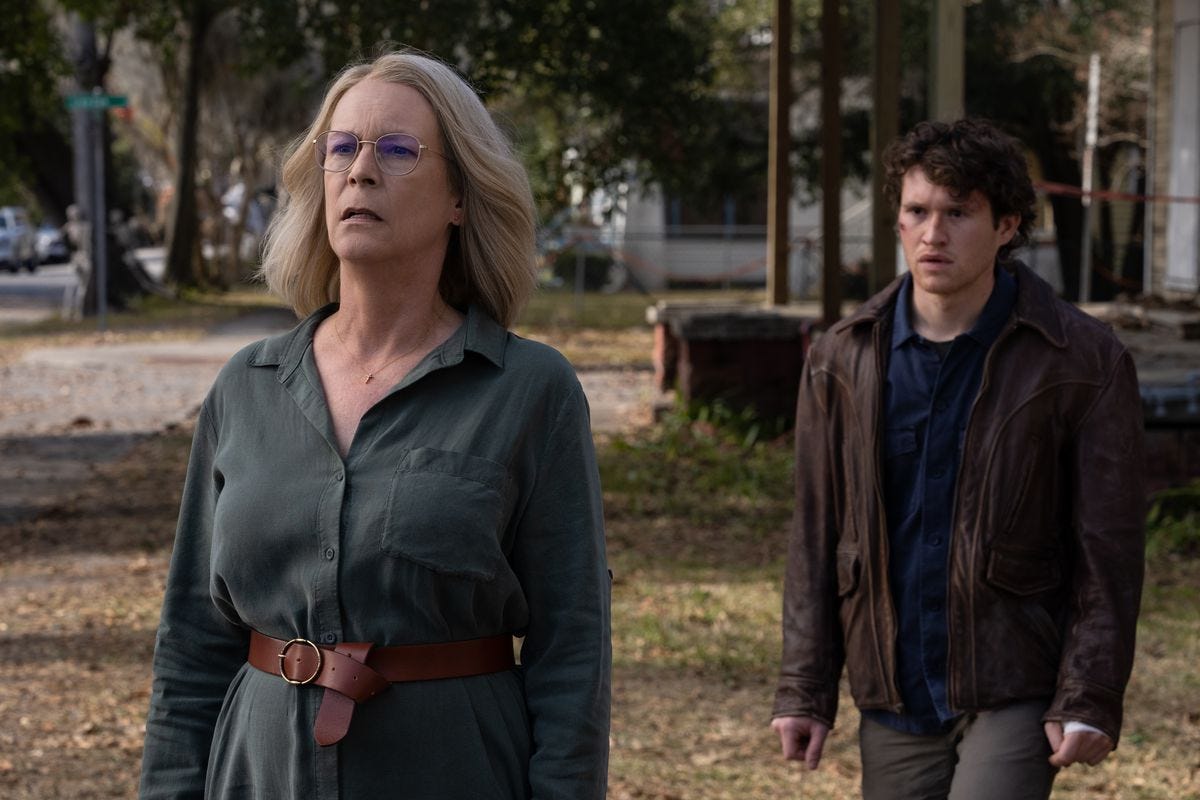
Who do you think is the protagonist of this movie, Laurie or Corey?
My knee-jerk reaction is to say Allyson.
Fascinating!
I remember telling David when I saw the ‘18 screening, I was like, The next movie should be Karen’s movie, and then the third one should be Allyson’s movie. And there’s something about her character, and this repression of her feelings, that I think Andi [Matichak] plays great. I always thought of it as her movie. If I was to determine between those two that you just listed, I would say Laurie. I love Corey to pieces, I think he’s a tragic character. He has my heart. I love him, and I love the actor Rohan [Campbell], he’s incredible.
Well I love that answer, I’m glad I asked. Let’s talk about I hope you find love.4 That is an almost incongruously lovely line, it is your pinned tweet, so I imagine it is something that is special to you. What is that line all about to you?
Like I was saying earlier, it’s love and death, and if you don’t have this, you have this. Ronald’s a really beautiful, soulful character. He can be used to comedic effect, but then he has this line, it both makes you laugh and hopefully pulls at your heart a little bit. And seeing that Corey has that thing of like, I’m being pulled to this one place, and this other thing could save me if I could give in to that—I find it very heartbreaking, I love that line so much.
So last thing, and I’m just teeing something up for you: you wrote the novelization. Can you give us the pitch on why we should read the book if we’ve seen the movie? I’ve seen the movie twice—why do I pick up the book, too? I already did, for reference, but -
Sure. A really quick part is that half of the book is stuff that’s not in the movie. I wanted to make a novel. I appreciate novelizations, but I write novels, I love to write prose. I was really inspired by what Tarantino did with Once Upon a Time in Hollywood5 and was just like, Oh yeah, that’s what I want to do, I want to be in service of the book and not necessarily the movie for this. I can’t believe they let me do it, because usually these novelizations, they’re very strict with what extra material they let you [include]. And I was like a week into it and I had already written these flashback scenes to 1981 and introducing old characters6 and writing Laurie’s memoirs and then they came back to me and were like, You need to get anything approved. So I wrote a very thin outline of some of the stuff I was doing and I was ready to throw an artistic hissy fit, and just say, If I can’t do this I’m not doing the book.
It had to feel like a real thing to me and not just Oh, I’m gonna translate the script into prose, add some adjectives. I think novelizations are an incredible craft and skill, not taking anything away from that—more than I actually possess. I don’t think I could take somebody’s screenplay and then novelize it, I’d find that very challenging. So I just made it like a book that I would have [written] out of nowhere.
And we should do a plug for our friends at Authorized Novelizations Podcast–you’re gonna be talking more about the book over there, right?
Yeah, they’re the best. Next month I’m doing an interview with them. It’s a really incredible podcast, it’s so fun, and it’s so literate. I just really enjoy that podcast very much.
Halloween Ends is in theaters and streaming on Peacock now.
Though he is never referred to as such in dialogue, in the 1978 film, the character is credited onscreen as “the Shape” rather than “Michael Myers.” ↩
David Gordon Green’s Halloween movies ignore everything in the franchise except the original 1978 film (consequently, in this branch of the franchise, Michael and Laurie are not siblings). ↩
After the interview, I admitted I couldn’t remember the nature of this reveal, and Paul reminded me: “I can’t remember the gangster who’s pursuing Sean Connery’s character, but he’s watching him through the windows. I mean it’s a total De Palma stalking scene, it’s no different from the opening of Blow Out. But in this case, Sean Connery is aware that he’s there, so he’s putting on a record and pouring [a drink]. We cut all this out of the movie. There was a whole sequence where Corey is watching Laurie do those things.” ↩
In the third act of Halloween Ends, Corey returns home, where he is verbally abused and sexually assaulted by his mother, who then exits, leaving Corey’s father, Ronald, to offer his son a quiet, “I hope you find love” as a button on the scene. ↩
To say that Tarantino’s novel significantly expands on the film’s story would be an understatement, and many of those additions meaningfully alter the film’s events. ↩
As a huge fan of the lunatic Dr. Loomis, Donald Pleasance’s franchise mainstay, I’m delighted to flip through the book and see the name Loomis come up what seems to be many, many times. ↩
